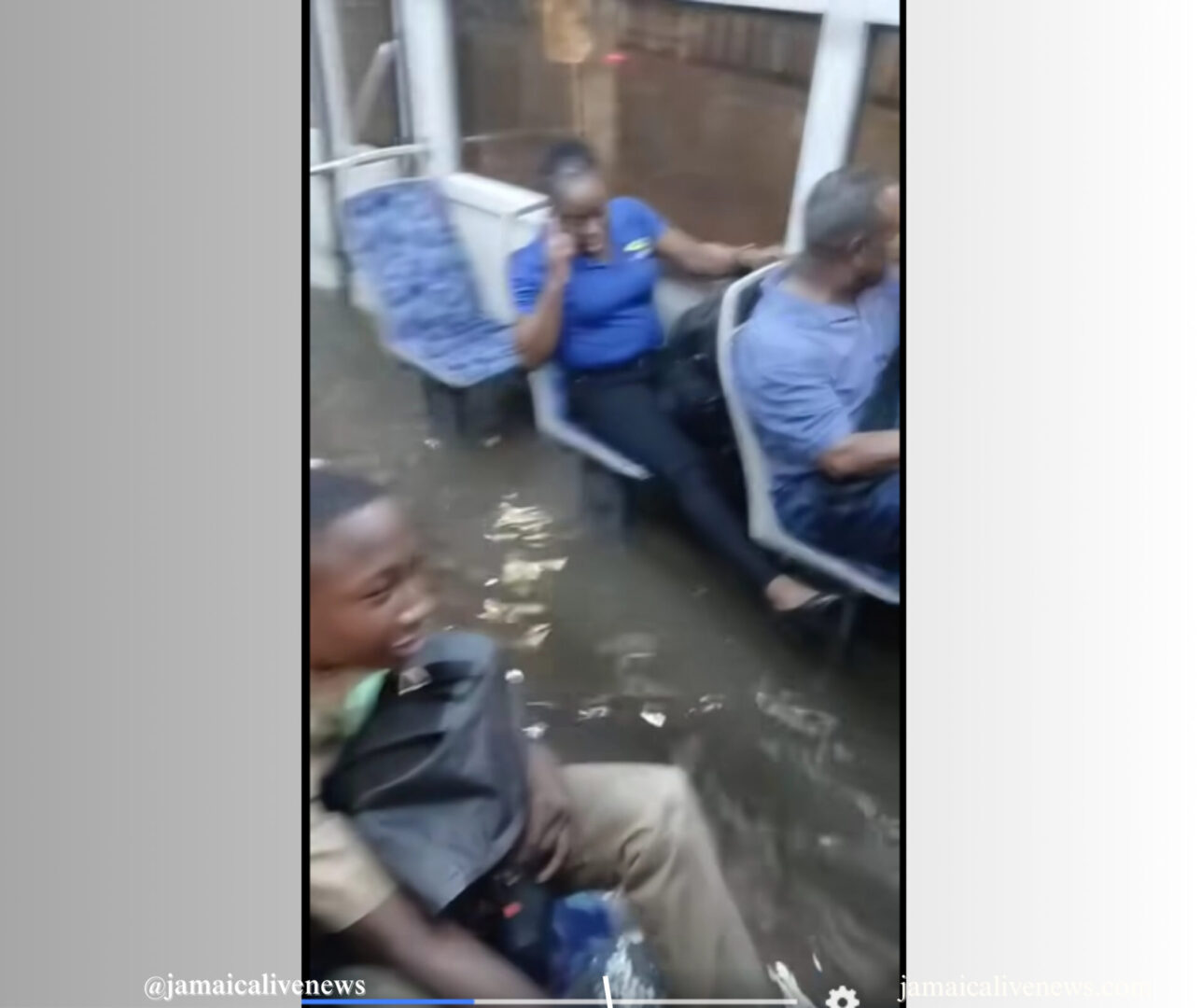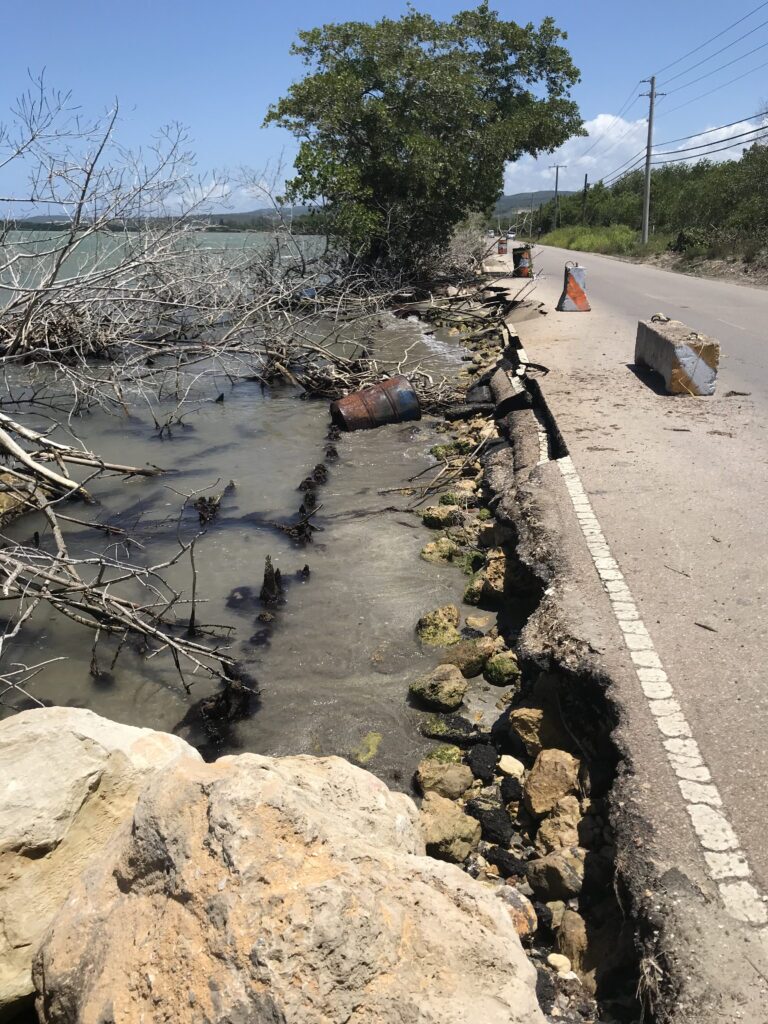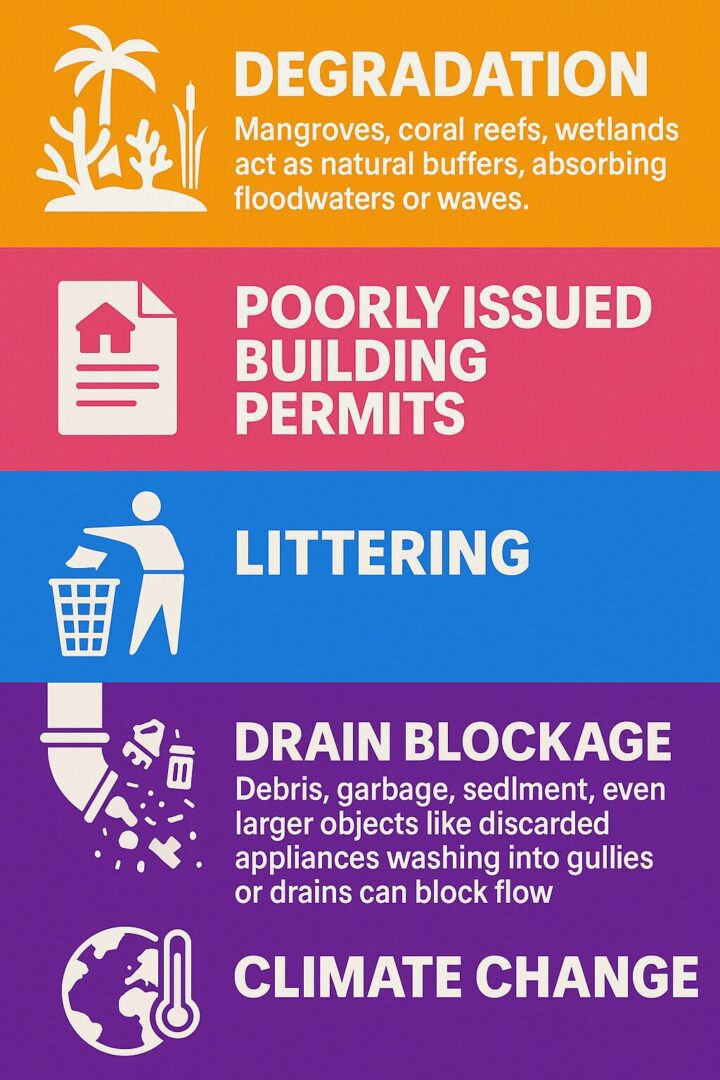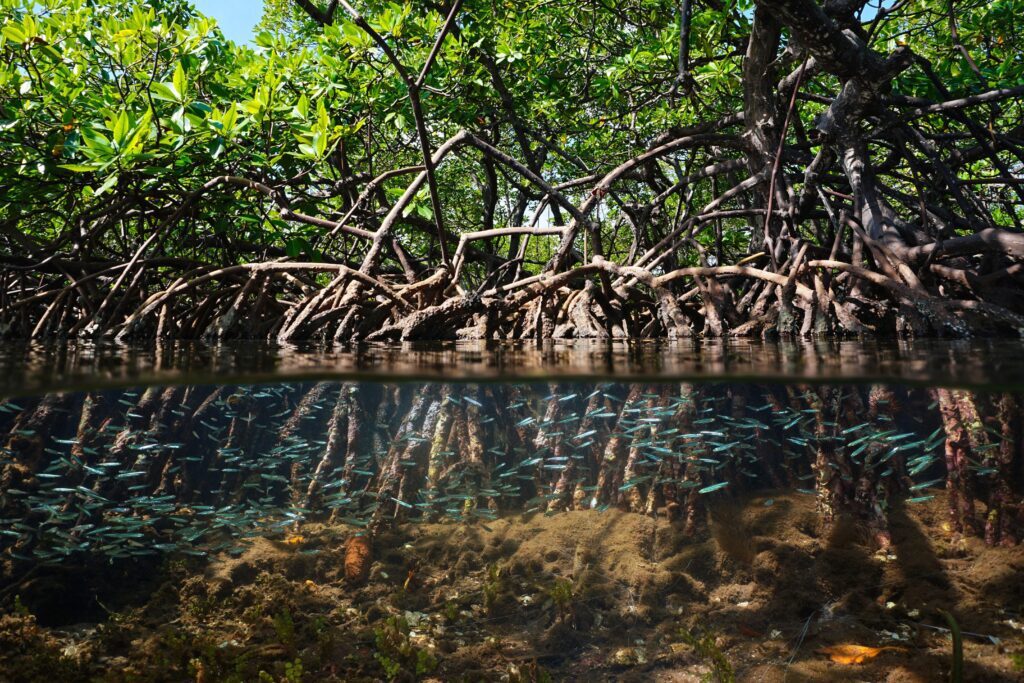Severe Thunderstorms and Flooding Lash Kingston & St. Andrew
Jamaica Live News Desk– | Sept 21, 2025
Heavy thunderstorms and torrential rains battered sections of Kingston and St. Andrew yesterday, Friday, September 19, 2025, leaving behind scenes of chaos and flooding across the Corporate Area.

Residents were rattled by intense lightning strikes throughout the afternoon. September marks the peak of Jamaica’s thunderstorm season, when frequent lightning can spark fires, damage infrastructure, and pose deadly risks. Authorities are once again urging citizens to take precautions: never shelter under trees, avoid touching metal, and remember — “When thunder roars, go indoors.”
Floodwaters Swamp Kingston
The downpour quickly overwhelmed roadways and drains, triggering flash floods in several communities. Video footage circulating on social media shows passengers trapped inside a JUTC bus as floodwaters rose around their seats, forcing commuters to lift their belongings onto their laps and seek higher ground inside the vehicle.
Other clips captured vehicles stalled or swept by rising waters in low-lying areas of Kingston. In some neighborhoods, water levels surged so quickly that pedestrians were caught off guard, stranded at bus stops and intersections.
What Makes Flooding Worse in Jamaica?
Inadequate Drainage Infrastructure
- Old, undersized, or poorly maintained drainage systems can’t keep up with the volume of water during heavy rainfall events.
- Drain blockage: debris, garbage, sediment, even larger objects like discarded appliances washing into gullies or drains can block flow.
- Design issues: some drainage systems were built long ago under different expectations (less urban development, lower population, less demand), which cannot cope with current loads.

Land Use and Urbanisation
- Informal or unplanned settlements often develop in flood‐prone areas (floodplains, gullies, low‐lying zones) and sometimes block drainage paths.
- Deforestation and removal of vegetation cover increase runoff: when rain falls on cleared land it runs off faster instead of being absorbed into soil. This causes rivers and streams to rise quickly.
- Poor or improper agricultural practices can worsen soil erosion, causing sediment to fill up waterways.
Settlement in Flood-prone Areas
- Building in floodplains, low‐lying valleys, near gully banks, coastal zones. These regions are naturally at higher risk.
- Informal construction may not follow building codes or consider drainage, height above flood level, etc.

Coastal and Watershed Ecosystem Degradation
- Mangroves, coral reefs, wetlands act as natural buffers, absorbing floodwaters or waves. When these are degraded (due to pollution, construction, overuse), the buffering capacity drops.
- Watersheds not well managed: erosion, landslides, siltation in rivers. Rivers can’t carry away water efficiently if filled up with sediment.
Sea Level Rise and Coastal Backwater Effects
- Rising sea levels make coastal drainage outlets less effective — water flowing out to sea can be impeded, especially during high tides or storm surge, causing flooding inland.
- Storm surges and combined river flooding can push seawater into urban drains or overwhelm coastal defences.

Safety First: Officials Warn
Emergency authorities have issued fresh reminders on how to stay safe in flood conditions:
- Stay calm and keep belongings above water level.
- Seek higher ground inside vehicles or buildings.
- Never walk or drive through fast-moving floodwaters — just a few inches can sweep a person or car away.
- Turn around, don’t drown if you encounter flooded roadways.
Health officials also caution against wading in stagnant water, which may be contaminated and pose risks of infections or disease.
The Bigger Picture
Jamaica’s capital has long struggled with flooding during heavy rains, particularly in September and October, when storms are most frequent. While yesterday’s downpour brought disruption, it also reignited calls for stronger flood-prevention measures, improved drainage systems, and greater public awareness campaigns on disaster preparedness.
As the rainy season continues, Jamaicans are urged to remain vigilant, heed official warnings, and always prioritize safety.
